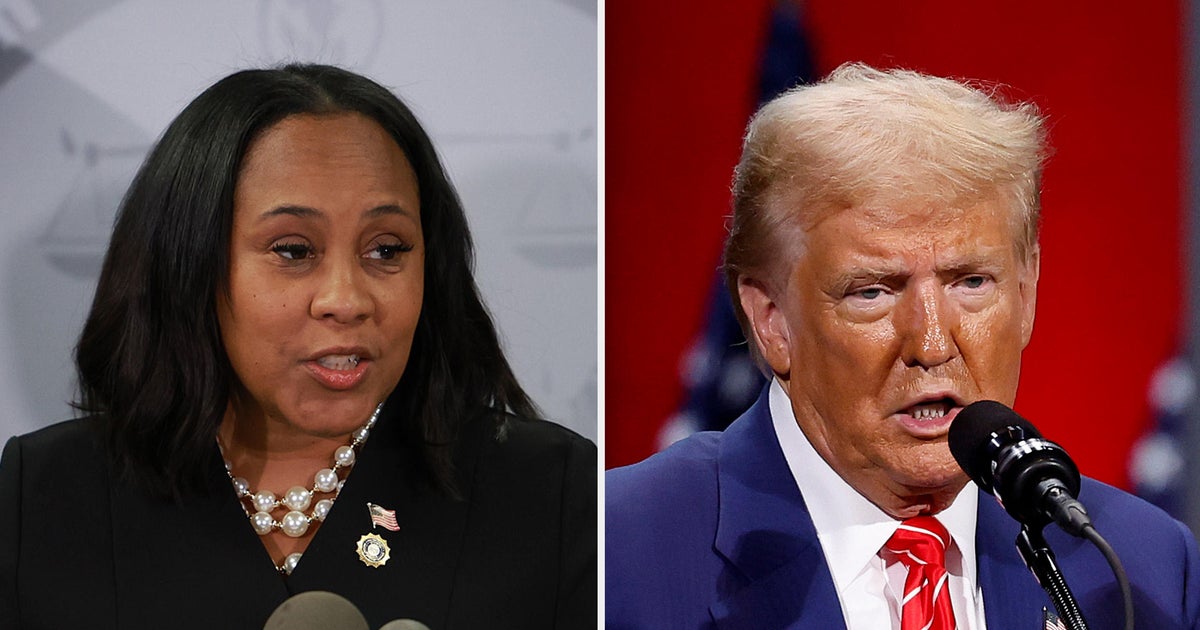Gowdy, Goodlatte call for special prosecutor to investigate FBI's use of FISA warrants
Republican Reps. Bob Goodlatte and Trey Gowdy are calling on Attorney General Jeff Sessions and Deputy Attorney General Rod Rosenstein to appoint a special counsel to review decisions made by the FBI over the past two years when the Bureau was obtaining surveillance warrants to investigate Russian interference in the 2016 election.
The request for an investigation appears to stem from allegations outlined in the memo authored by Rep. Devin Nunes, chairman of the House Permanent Select Committee on Intelligence, earlier this year. The memo alleged that the FBI relied on information from a dossier written by former British spy Christopher Steele and paid for by Democratic groups when they sought a warrant to monitor Carter Page, one of Trump's foreign policy advisors, under the Foreign Intelligence Surveillance Act (FISA).
"I think there's a very serious matter regarding conduct by the FBI," Goodlatte, the House Judiciary Committee chairman, told reporters Tuesday.
He and Gowdy insisted that only a special counsel has the necessary authority to conduct a full investigation, including the power to issue subpoenas, convene grand juries, and prosecute criminal acts.
Sessions announced last month that he was instructing Justice Department Inspector General Michael Horowitz to investigate potential FISA abuses, but the two lawmakers said the Horowitz lacks the authority to compel testimony by former Justice officials, former FBI officials, or officials who work for other departments. Gowdy said he believed there were at least 24 witnesses who might testify in a probe of FISA abuses that are "outside the reach" of the inspector general, citing as an example three former Clinton associates: Sidney Blumenthal, Cody Shearer, and Victoria Nuland.
Additionally, Goodlatte said, the decisions made during the FISA warrant process involve "decisions made at the highest levels at the FBI and high levels of the Department of Justice that need to be examined from the outside."
President Trump was also dissatisfied with Sessions' decision to call for an investigation by the inspector general and slammed his own attorney general on Twitter. That investigation, the president tweeted, "Will take forever, has no prosecutorial power and already late with reports on Comey etc."
Ranking member of the House Intelligence Committee, Rep. Adam Schiff, D-California, suggested that House Republicans had been spurred to act by that tweeted complaint.
"As if on cue, House Republicans now call for the appointment of a special counsel to investigate 'FISA abuse,'" Schiff said in a statement. "In so doing, Republicans express their interest in investigating everything but what is most important: Russia's interference in our election, the Trump campaign's role and what we need to do to protect the nation in the future. This may help serve the President's interests, but does nothing to serve the national interest."
The ranking member of the House Government Reform and Oversight Committee, Rep. Elijah Cummings, D-Maryland, was also dismissive.
"The federal regulation on Special Counsels is clear—the Department of Justice must determine that a 'criminal investigation of a person or matter is warranted,'" Cummings wrote in a statement. "In this case, it is difficult to see what crime the Republicans are alleging. Republicans have made numerous unsubstantiated allegations, like claiming that the Justice Department did not disclose in its FISA application that research was funded by political opponents. But even if that claim were true, it does not constitute criminal activity."
Gowdy said he believes the questions a special counsel should investigate include whether information from "nongovernmental sources" was used during the FISA application process, whether or not it was vetted before it was used, and whether or not the information relied on sources that violated DOJ's own internal rules.
As for why a congressional committee – with its powers to subpoena witnesses from inside and outside a department – was insufficient to conduct an investigation, Gowdy said he and his colleagues lack both the tools and the public confidence to do so.
"We leak like the Gossip Girls," Gowdy said. "We don't have the ability to impanel a grand jury, we don't have the ability to offer immunity, we should not be offering immunity. He added that parts of the Executive branch are "more publicly confidence-inspiring than current congressional investigations."
A special counsel investigation would continue even if Republicans were to lose control of the House of Representatives in the midterm elections.



